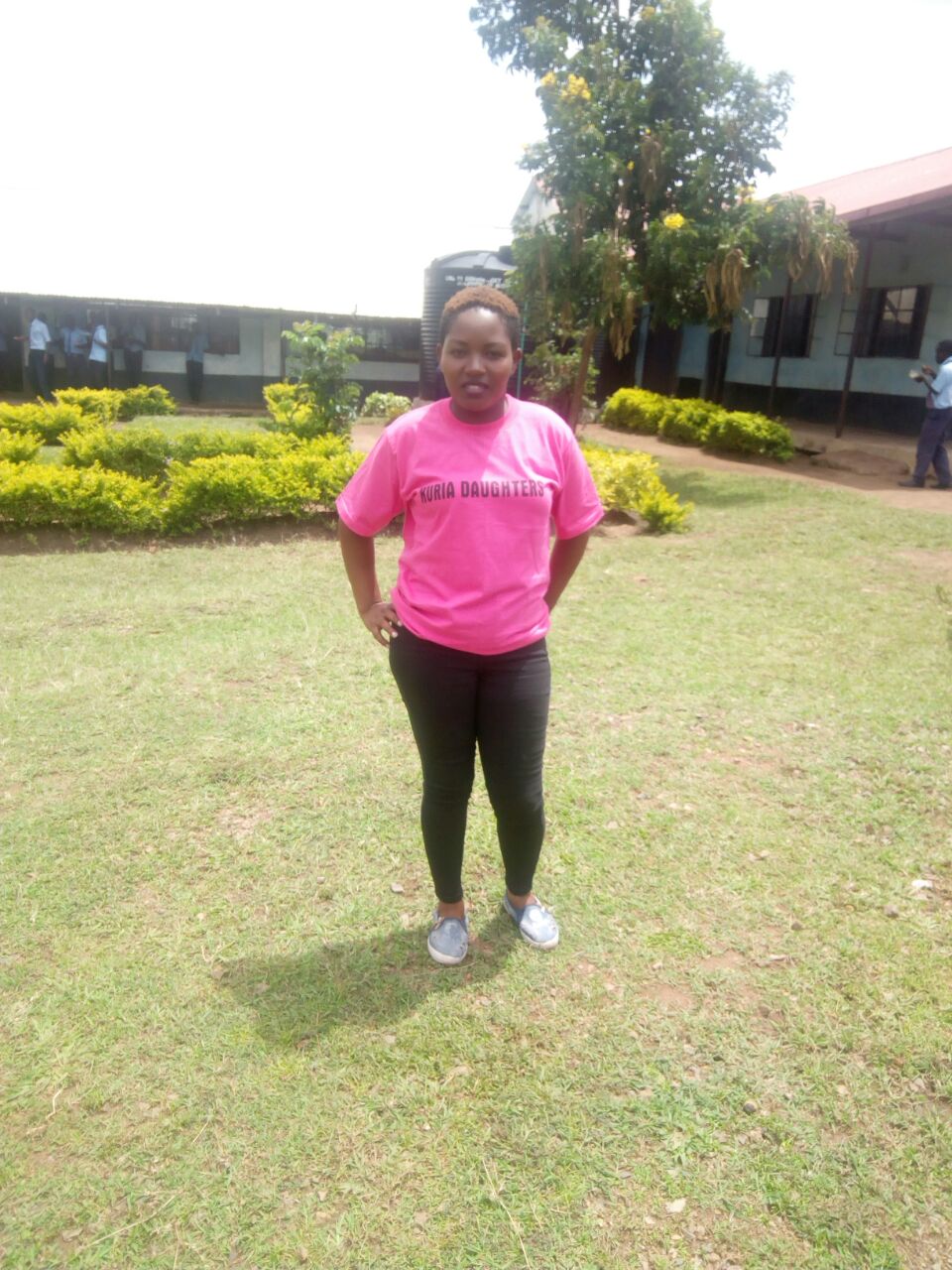“Lucy, you are abnormal between your legs,” are the words of a man that stung and reminded Lucy Weisiko of the shaming she experienced as a girl for not undergoing “the cut.”
As a young girl, having her clitoris intact meant no one wanted to be friends with her because she was viewed as “unclean.” And as a result, she had trouble making friends. Even today, the 28-year-old mother of two still faces ridicule within her community for her parent’s decision not to allow their daughter to be mutilated.
Weisiko was raised in a remote part of Kenya – Migori County in South Nyanza. Her family is part of the Kuria Tribe.
“The Kurian people practice female circumcision,” Weisiko told The Weight She Carries. “When I was about the age of 10, my parents didn’t want me to go through the cut, but there was pressure from grandparents and other relatives and friends. So when I didn’t go through with it, I had a tough time because I wasn’t allowed to associate with the other girls.”
Female genital mutilation (FGM) is the intentional removal or altering of the female genital organs, specifically, the clitoris. The reasons for this procedure are non-medical and deminish a woman’s sexual pleasure as a way to prevent her from being “promiscuous.”
FGM is practiced in roughly 30 countries in Africa, the Middle East and Asia, with Indonesia, Egypt and Ethiopia accounting for half of all FGM victims worldwide, according to United Nations.
 “It is something that is done in a public way and practiced openly,” Weisiko said. “So people will always know that the girl in a particular home was not circumcised.”
“It is something that is done in a public way and practiced openly,” Weisiko said. “So people will always know that the girl in a particular home was not circumcised.”
FGM is viewed as a rite of passage, Weisiko explained, and after the procedure, a celebration ensues to which family members and the community at large are invited to participate in.
“They see it as transitioning from a child to a woman,” she said. “The reasoning is that if a woman is not circumcised, she will become a prostitute or will not be able to stay with one man.”
While over 200 million girls and women today have undergone genital mutilation, many do not survive the procedure and die of blood loss or infection.
FGM has no health benefits for girls and women, and the procedure can cause severe bleeding, problems urinating, painful intercourse, cysts later on in life, infections, complications in childbirth and increased risk of newborn deaths.
FGM has been banned in Kenya since 2011.
“The women who perform the cut do not do it in a sanitary way. They use a razor and there is cross contamination from one girl to the next,” Weisiko said. “If one girl is infected with a diseases, the next one will probably get it also.”
Weisiko explained that FGM is performed in December every other year.
“When girls undergo FGM, most of them will drop out of school and get married immediately after they have healed,” Weisiko said.
The healing process takes approximately one month, she said. The boy child is also circumcised in a traditional ritual.
At the time, Weisiko felt out of place and was teased relentlessly by her peers.
“I used to be alone. I didn’t have friends. It was difficult for me. And at that age, I couldn’t understand why my parents were refusing to allow me to be cut. When my parents realized that I wasn’t doing well academically, they switched me to a different school.”
– Lucy Weisiko
Weisiko and her family moved to Nairobi, where the practice was not encouraged.
“I’ve come to realize that there are some men in our tribe who will not marry a woman who is not circumcised,” Weisiko said. “And some husbands are shamed for having a wife who is not circumcised, so they pressure their wives into getting mutilated even after marriage.”
Most girls do not have a choice when it comes to FGM. And those who do have a choice are under such grave pressure to conform to the practice, that they are often threatened if they refuse.
“Many girls are told by their parents that they cannot stay in their homes if they do not get mutilated,” Weisiko said.
 Now, as an adult, Weisiko, who is a hair dresser, travels back to her village to educate girls on the dangers of FGM and why they should stand up for their rights and know their worth. She is in the process of registering her organization, Save Girl Child Empowerment.
Now, as an adult, Weisiko, who is a hair dresser, travels back to her village to educate girls on the dangers of FGM and why they should stand up for their rights and know their worth. She is in the process of registering her organization, Save Girl Child Empowerment.
When she travels to empower girls, she can be seen sporting her pink “Kurian daughters” T-shirt.
However, each time she goes back to the community she was raised in, Weisiko is shamed for not being circumcised.
“I believe I am a strong lady. I don’t bother with the negative opinions of other people. It’s my body; it’s my life. I know at the end of the day, their opinions don’t matter at all.”
– Lucy Weisiko
Weisiko is also an advocate for bipolar disorder – a condition she fights through every day.
“I was diagnosed with bipolar disorder in June after I almost killed my kids,” she said.
Weisiko began experiencing drastic mood swings when she was in primary school and thought it was normal to frequently fluctuate from happiness to sadness. Over the years, her symptoms increased.
“This year things got out of hand. I’m now on medication and I go for counselling sessions,” she said.
The incident that prompted her treatment was a scary time for her family.
“I was making supper and my mood just dropped suddenly. My first-born daughter asked me what was wrong and I just snapped and almost strangled her,” Weisiko said. “My younger daughter started to cry and I slapped her. My neighbors heard her scream and came and rescued the kids.”
Weisiko was taken to the hospital, and after several tests were run, she was diagnosed.
There were signs along the way. Her mother had expressed concern when she was younger, as did her fiance.
“I got mad at him one time and sent him about 100 messages. He told me to seek help because he thought I might be insane,” she said. “But I thank him because he has remained supportive.”
Despite facing dual stigmas from being uncircumcised and being bipolar, Weisiko is determined to share her story and encourages girls and women to know their worth, and to never succumb to societal pressure.
Vimbai E. is a content marketer, ghostwriter, and the founder of The Weight She Carries. With hundreds of articles and stories publishing online, in print and for broadcast, her love of language and storytelling shines through every piece of writing that bears her name.
